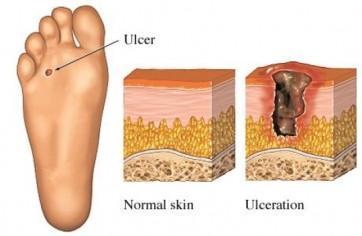Paying special attention to your feet is imperative all year round when you have diabetes. That being said, you have to be particularly careful in the winter. Since diabetics often experience numbness in their feet or have weak circulation, cold weather poses a slew of extra challenges when it comes to keeping feet healthy. As with any health issue, though, it's always better to be proactive rather than reactive. Don't make any emergency room visits this year – be attentive and enjoy the holiday season to the fullest. Check out our collections for more diabetes supplies.
Pay Attention
The simplest of all the proactive steps for diabetic foot care is to do a daily inspection. Make sure there are no discolorations on the skin, cracking, strange odors, painful calluses, discharge, et cetera.
Choose Footwear Wisely
Of course, everyone wants their feet to be dry and warm in the winter, but this is particularly true for diabetics, considering their poor circulation. Shoes worn in the winter should always be very warm, and if there is snow or rain, they should be waterproof, too. However, shoes should also be roomy enough so that they allow for ample blood flow. Wool socks can help keep your feet warm and dry, and there are also many moisture-wicking diabetic socks on the market which are always a good idea.
Moisturize!
Another symptom of poor circulation is dry skin. Of course, in the winter, you're exposed to a lot of dry heat from using the heater in your house or in the car. Find a thick, penetrating moisturizer and use it every day before putting on your socks in order to prevent cracking and skin breakage.
Groom
Many people, especially those with diabetics, suffer infections due to neglecting their toenails. Soak your feet to soften the nails, which can help prevent ingrown nails, and clip them regularly to prevent any complications and pain.
Care for Wounds
If you do end up with an ulcer or some other form of foot wound due to diabetes, it's important to begin caring for it immediately and properly. This involves wearing special footwear to take the pressure off the wound and walking as little as possible. Keeping wounds covered and moist is the quickest way to facilitate healing, so be sure to use the proper wound care dressings. Hydrocolloid dressings, such as Duoderm, are a popular choice amongst physicians.
Most importantly, keep your blood glucose at a reasonable level to most effectively prevent foot wounds, as they can end up being worse in the winter due to restricted circulation.


